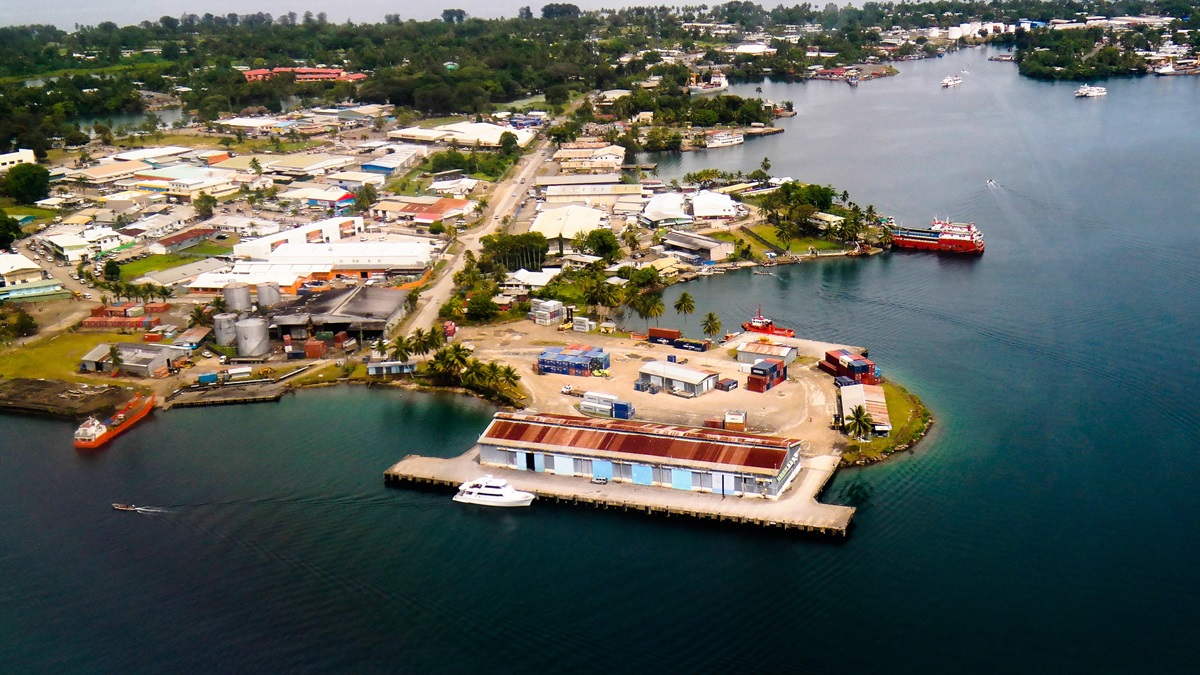Supported by global partners, the nation sets out to build a one-stop digital platform to automate customs processes, reduce logistic costs, and enhance trade competitiveness.
© Shutterstock/Homo Cosmicos | The port of Madang, Papua New Guinea.
Papua New Guinea, a small island developing state in the southwestern Pacific, is working to digitally transform its import and export processes.
On 3 May, the country received a blueprint outlining a phased approach to implementing an electronic single window, which will connect 32 government agencies responsible for clearing cross-border goods within one IT platform, helping save time and costs for global traders.
The blueprint is designed by ASYCUDA, the customs automation programme run by UN Trade and Development (UNCTAD), in collaboration with the government of Papua New Guinea.
It provides strategic guidance, prerequisites and recommendations for building a trade single window, in line with national and regional requirements as well as international standards.
“This blueprint provides a clear action plan to make Papua New Guinea a more attractive country to trade with,” said Shamika N. Sirimanne, director of technology and logistics at UN Trade and Development.
“UN Trade and Development looks forward to helping make this plan a reality,” Ms. Sirimanne added.
Richard Maru, Papua New Guinea’s international trade and investment minister, hailed the blueprint, noting that its implementation is a “number one priority” to bolster commerce and businesses for his country.
“Let us come together to deliver a single window system that will benefit our exporters and investors coming into our country,” said Minister Maru.
“We are all here to help grow the economy of Papua New Guinea,” the minister added.
Currently, 13 countries are running or implementing an electronic single window based on ASYCUDA technology – Barbados, Burundi, Comoros, Jamaica, Kazakhstan, Rwanda, Saint Vincent and the Grenadines, Sao Tome and Principe, Timor-Leste, Turkmenistan, Uganda, Vanuatu, and Zimbabwe.
‘IMPACT’ project making trade work for all
The blueprint for Papua New Guinea is part of a four-year project entitled “Improving Pacific Islands customs and trade” (IMPACT) where UN Trade and Development collaborates with the European Union.
The project, expected to conclude by the end of2025, seeks to facilitate trade by optimizing and harmonizing border and customs procedures across the region.
It echoes global calls – amplified by the UN-led 4th International Conference on Small Island Developing States underway this week – to accelerate sustainable development for economies situated far from the world’s main lines of trade.
Yearslong partnership bearing fruit
UN Trade and Development has been working with Papua New Guinea since 1993, when ASYCUDA version 2 was launched. In 2017, the country launched the latest generation of ASYCUDA customs management software, ASYCUDAWorld.
This upgrade has helped simplify customs clearance from an average of 35 steps to 10.
Also, thanks to the ASYCUDAWorld single movement permission module, processing time is shortened from seven days to less than two hours for traders seeking to move goods from the wharf to depots in order to avoid additional port charges.
Between 2017 and 2023, since launching ASYCUDAWorld, Papua New Guinea saw trade transactions increased in value by 16%.

